Mention Iceland and I guarantee that the Northern Lights are among the first things you think of. But when is the best time to see the Northern Lights in Iceland? And how do you see them? Read this in-depth guide – packed with everything you need to know.
Oh, Iceland – there’s something about this wild and rugged island that I just cannot resist.
Much as I loved my trip in May, there was one thing missing… the Northern Lights.
May, along with the other summer months, is the WORST time to see the Northern Lights in Iceland as the sun doesn’t really set and the sky is never dark enough to witness the natural phenomena. No worries – I knew that before I went and I had an absolute blast.
Fast forward a few months, and I decided to go back to Iceland, and stay in Iceland’s leading Northern Lights hotel, Hotel Rangá, to research more of my Iceland travel guide series and hopefully, HOPEFULLY, to see the Northern Lights in Iceland.
Did I manage it?
I’m really bad at keeping secrets so I’m just going to put this here…
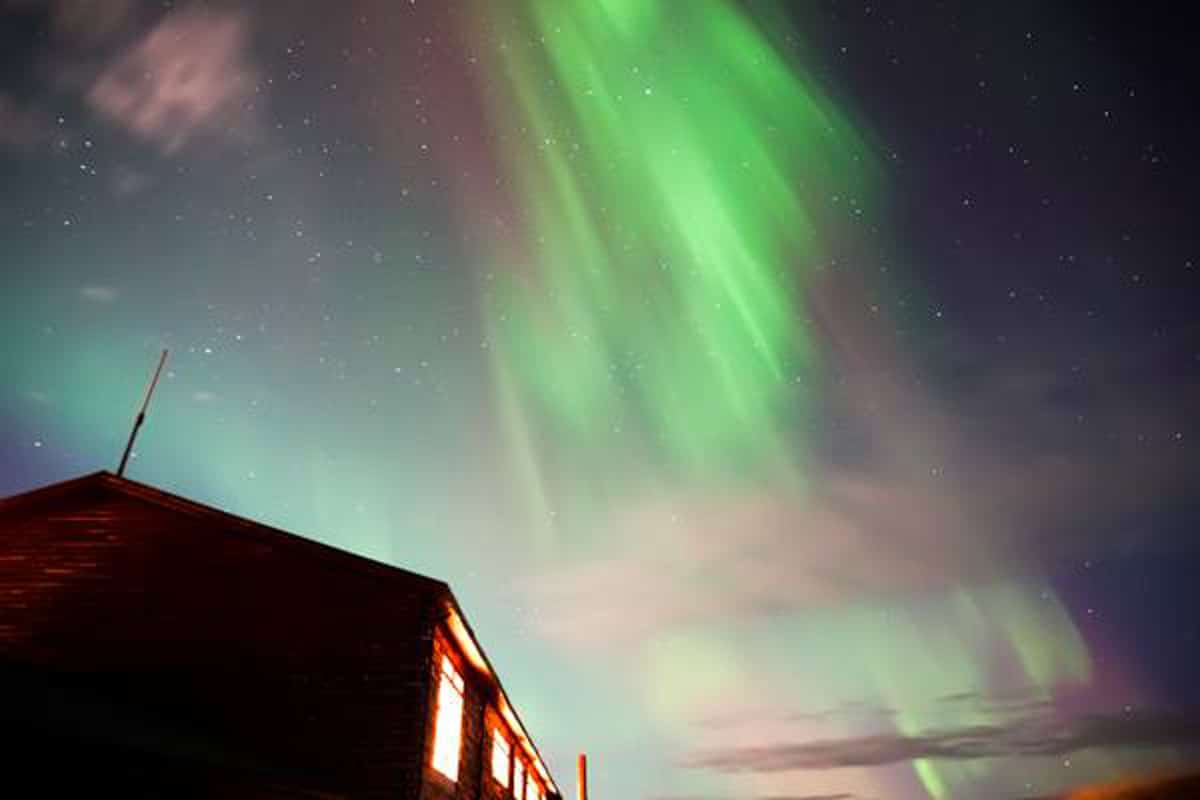
Yes! I saw the Northern Lights, not one, but two nights in a row. Total win.
Sure, I was incredibly lucky to get such a strong showing of the lights. At one point the whole sky burst into a dancing parade of greens, pinks and yellows and my head almost exploded with wonder – but it wasn’t all luck.
If you are planning a trip to see the Northern Lights in Iceland there are a few things that you should know before you book.
There’s never any guarantee that you will see the Northern Lights… but knowing this information will help you maximise your chance of viewing the aurora borealis.
Top Tip
The best time to see the Northern Lights in Iceland is between late September and early April each year.
However, I’ll warn you guys that the Northern Lights are a natural phenomenon and can be unpredictable, so there is no guarantee that you will see them even during the best time to visit.
I’ll go into more detail throughout this article, but factors such as weather conditions and solar activity can greatly affect visibility.
PS: Want to delve into how to plan a Northern Lights Trip? Watch this video!
Best Time to See The Northern Lights in Iceland
The Best Month to See Northern Lights

This might come as a bit of a surprise but the best months to see the Northern Lights in Iceland are late September and late March.
When I said I was travelling to Iceland and hoping to see the aurora in September, a lot of people looked at me like I was crazy.
“Errr, yeah, sure” was the most common response, with a few “Well there’s lots to see in Iceland anyways” (translation: not happening lady but I don’t want to crush your hopes so I’ll politely change the subject) thrown in for good measure.
You see, many people think that Northern Lights only come out in the winter months but that isn’t true. Do away with that fallacy right now.
It is true that you need dark nights to see the Northern Lights. So you can understand where the idea that winter is the best time comes from.
The nights are longer in winter so you’d think that you have more opportunity to see the Northern Lights. Right?
Not quite…
Why Late September and March?
The Vernal and Autumnal Equinoxes
The first reason why September and March are the best months to see the Northern Lights in Iceland is that displays of the aurora borealis tend to be particularly strong during the Vernal and Autumnal Equinoxes (which occur in March and September respectively).
Don’t believe me? Check out the discussions in this article from Wanderlust Magazine.
I also spent a lot of time talking to Hotel Rangá’s in-house astronomer Sævar Helgi (what a job!) and he agreed. The Spring and Autumn equinoxes are generally good times to see the Northern Lights in Iceland. Boom.
This man spends most nights for ¾ of the year staring at Iceland’s night skies. We should probably listen to him…
Why are the Spring and Autumn Equinoxes particularly good times to go aurora-hunting?
I won’t get too technical because I’m not an astrophysicist and I suspect that you’re just trying to plan your trip, not become an expert on the aurora borealis.
Essentially, geomagnetic activity is particularly high during the equinoxes. L. Svalgaard, E. W. Cliver and A. G. Ling record that:
“twice as many storms (geomagnetic) occur on average during the equinoctial months (March and April/September and October) as during the solstitial months.”
The Semiannual Variation of Great Geomagnetic Storms
Geomagnetic storms equate to increased aurora activity.
This year’s Autumn equinox was on the 23rd September – in other words, one of the dates I was in Iceland.Was it an accident that I just so happened to be in Iceland during the Autumn Equinox? No, it most certainly wasn’t.
It’s Not So Cold

You are a long way north people, and Iceland’s winters can be bitterly cold. So very cold.
Contrast that to September, where the average nighttime temperature in Iceland is much warmer and you’ll start to understand why spending hours and hours staring at the sky in the hope of seeing the lights might possibly be a nicer task overall in September than in the midst of winter.
There’s Less Cloud
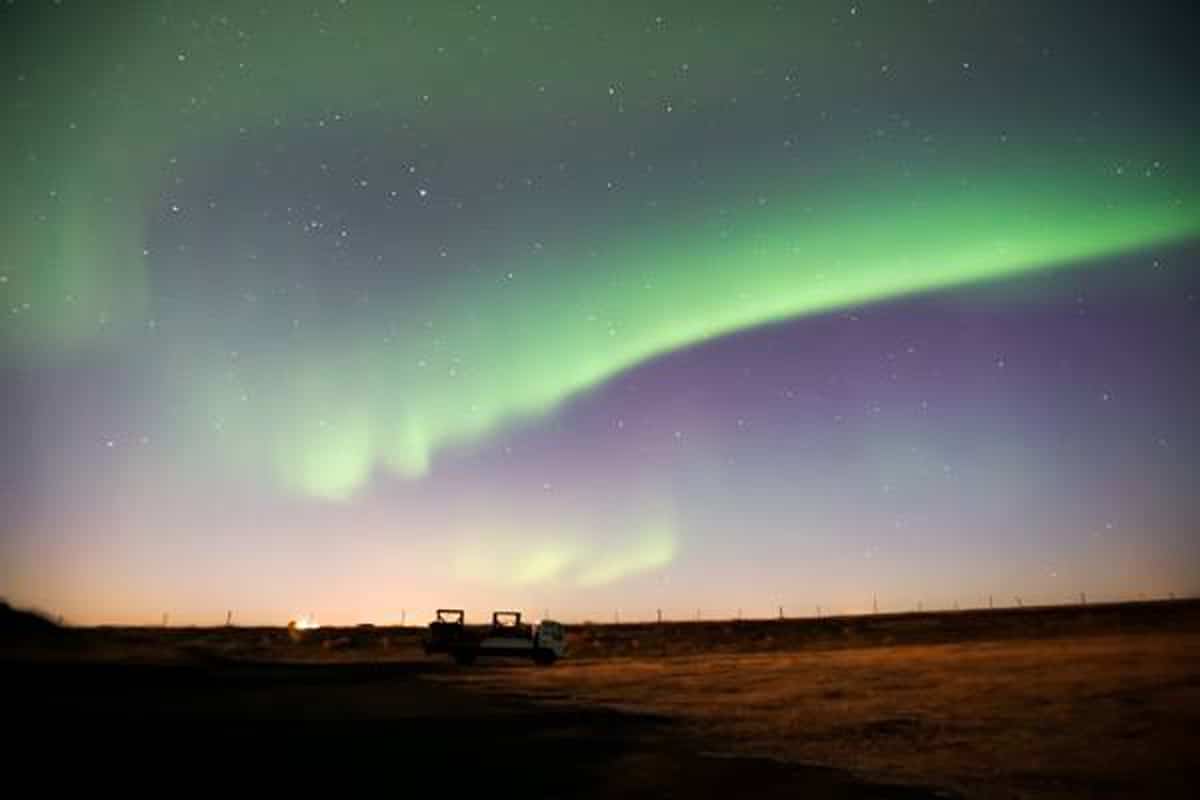
The one thing that is guaranteed to scupper your chances of viewing the Northern Lights is a night sky blanketed in thick, unbroken clouds.
How are you going to see the aurora borealis if you can’t see the sky? The short answer is, you can’t.
Just so happens that of all the months in the Northern Lights season in Iceland, September tends to be the least cloudy.
Looks like it’s September for the win then, with March coming a close second.
When to See the Northern Lights in Iceland: Month by Month
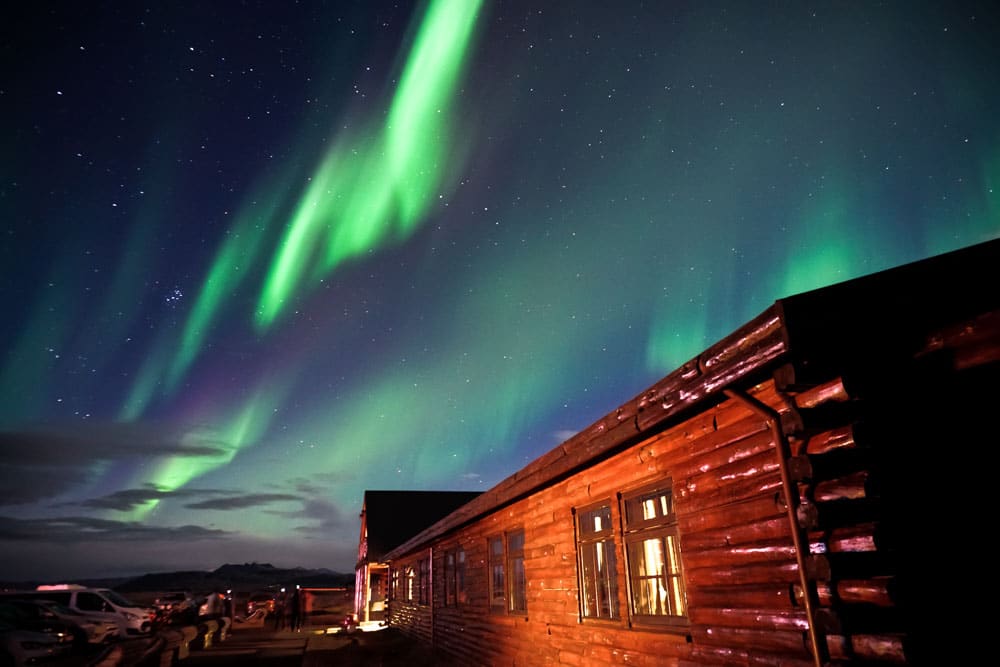
So we know that the best time to go to Iceland for Northern Lights is September to April and the best month is September (closely followed by March), but what can you expect if you go to see the Northern Lights in Iceland in other months?
September
The Northern Lights in Iceland in September tend to be good thanks to the autumn equinox and less cloud cover. It also has the least rainfall of any month in Iceland’s Northern Lights viewing season. This is the best month to see the aurora.
October
October is an OK month to go as the nighttime temperatures are still relatively high. However, October is Iceland’s wettest month, so come prepared with rainproof gear.
Rain also equals clouds, so again, not great.
November
The weather gets colder in Iceland in November but the night gets longer – so the auroras are visible for a longer part of each day should they appear.
December
December should be the best month, if we went on daylight hours alone (around the winter solstice southern Iceland has around 4 hours of daylight and the north even less). But statistically, there is less aurora activity in December than during September and March. The weather is also colder.
January
The outlook for seeing the Northern lights in Iceland in January is pretty much the same as for November and December but it’s fractionally colder and quite a bit wetter (and cloudier).
February
Things start to look up again in February. Although the daylight hours start to lengthen, it’s a bit warmer and less rainy than January.
March
March is the second-best month for seeing the aurora borealis in Iceland. The earth’s position during the Vernal Equinox tends to lead to stronger displays of the Northern Lights. Still very cold though.
April
You can still see the Northern lights until mid-April. After mid-April, the nights are not dark enough to see the lights.
Planning a Northern Lights Trip? Here’s What You Need to Know
What Causes the Aurora Borealis?
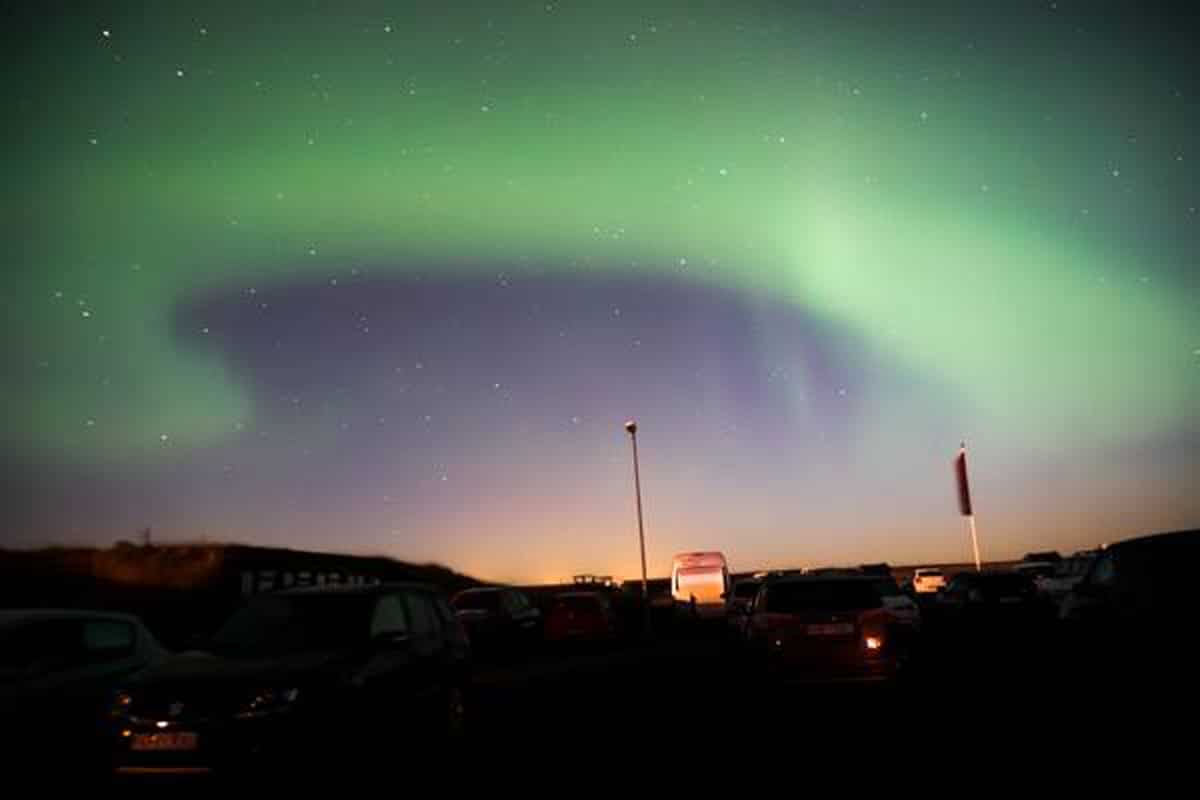
The Northern Lights (formally called the aurora borealis) are photons (light particles) created by the reaction between Solar Energetic Particles (SEPs) and oxygen and nitrogen molecules in the earth’s atmosphere.
The sun hurls out SEPs in solar flares during periods of solar activity. Most of these particles are deflected by the earth’s magnetic field – but the field is weaker in the areas surrounding the North and the South poles and some solar particles make it through the earth’s atmosphere.
Those that do collide with oxygen and nitrogen molecules in the upper atmosphere.
The result? The Northern Lights.
Although the earth’s magnetic field is weaker at the poles, it can also be affected by geomagnetic storms that are caused by solar wind shock waves. Geomagnetic storms have the effect of amplifying the aurora and increasing its visibility.
For example, there was a particularly strong storm early last September that meant I could see glimpses of the lights from London despite thick cloud coverage.
The Sun’s Activity Cycle
Aurora activity isn’t the same from year to year.
The sun goes through an activity cycle roughly each 11 years. Every 11 years, it will reach the Solar Maximum, which is when solar activity is highest.
You tend to see the strongest aurora displays in the two to three years on each side of the solar maximum.
The last solar maximum is right now in 2023 – so we’re in the period of the highest solar activity – as my photos show, you can get some brilliant aurora displays.
Stay at a Northern Lights Hotel
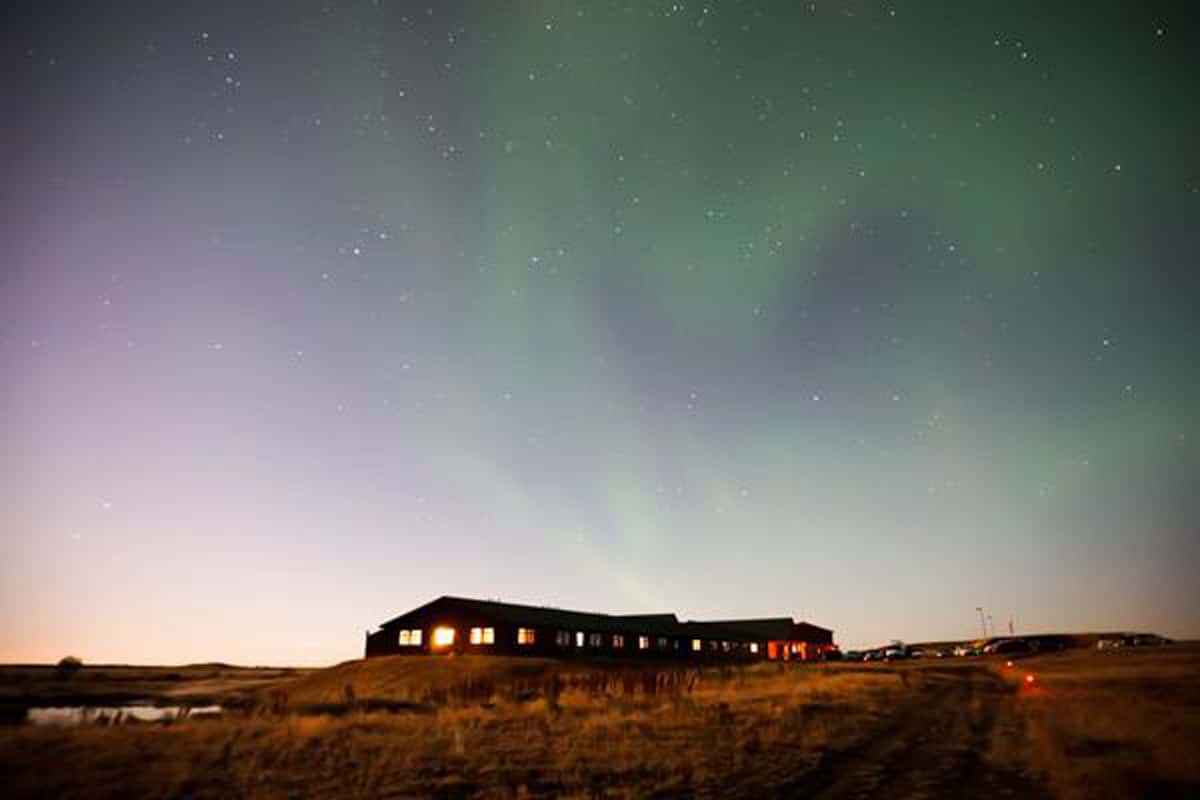
You have a lot of options when it comes to planning your visit to see the Northern Lights but I stayed in Hotel Rangá and would very much recommend it.
Hotel Rangá is well-known as one of Iceland’s best Northern Lights hotels thanks to a combination of a relatively remote (but easily accessible) position in the south of the country and stellar five-star accommodation.
But what about seeing the Northern Lights?
Hotel Rangá is situated in an area of low light pollution, which equates to dark night skies and great potential to see the aurora. So far, so good.
There are two other things that really make this hotel stand out too.
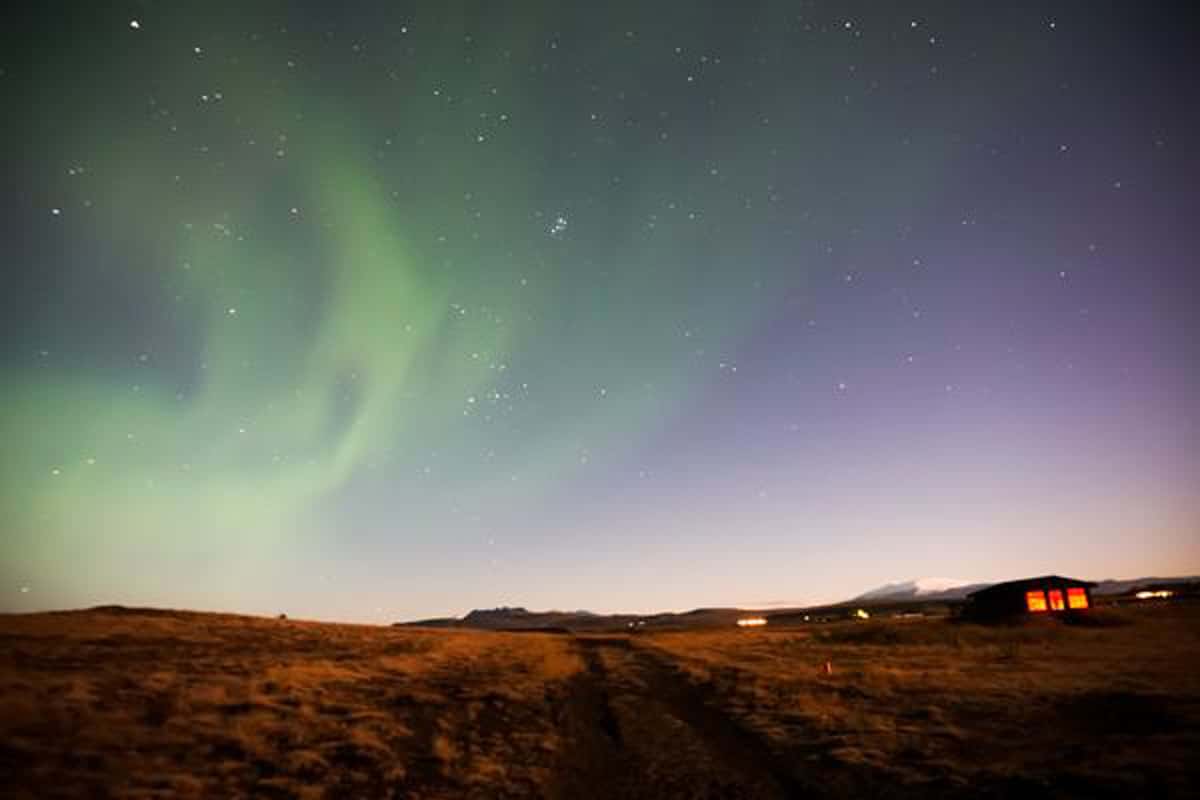
One is the hotel’s private observatory, which has a retractable roof and an in-house astronomer to talk you through all aspects of the Icelandic night sky – including the Northern Lights.
The observatory has the most advanced telescopes in Iceland that are accessible to the public (well, the hotel’s guests).
The astronomer guides you through the planets, constellations and galaxies you can see. Meaning there’s always something special to see even if the lights don’t make an appearance that evening (as long as it’s not too cloudy).
Rangá also offers a special Northern Lights wake-up call.
What is this devilry you ask? Simply tap the button on your in-room phone before you go to bed at night and they’ll wake you up if the Northern Lights come out to play.
Beats standing for hours in the cold or sitting in a coach right?
I will 100% acknowledge that as I get older, I need sleep in a way I didn’t in my teenage years, or even my twenties for that matter. After one night of staying up nearly all night to see the lights and then getting up early the next day to go and explore, I was zonko.
The next night, I watched the lights for a few hours until they disappeared at 1am then gracefully (and gratefully) retired to bed after pushing the button (good time for a Sugababes reference? Maybe not…).
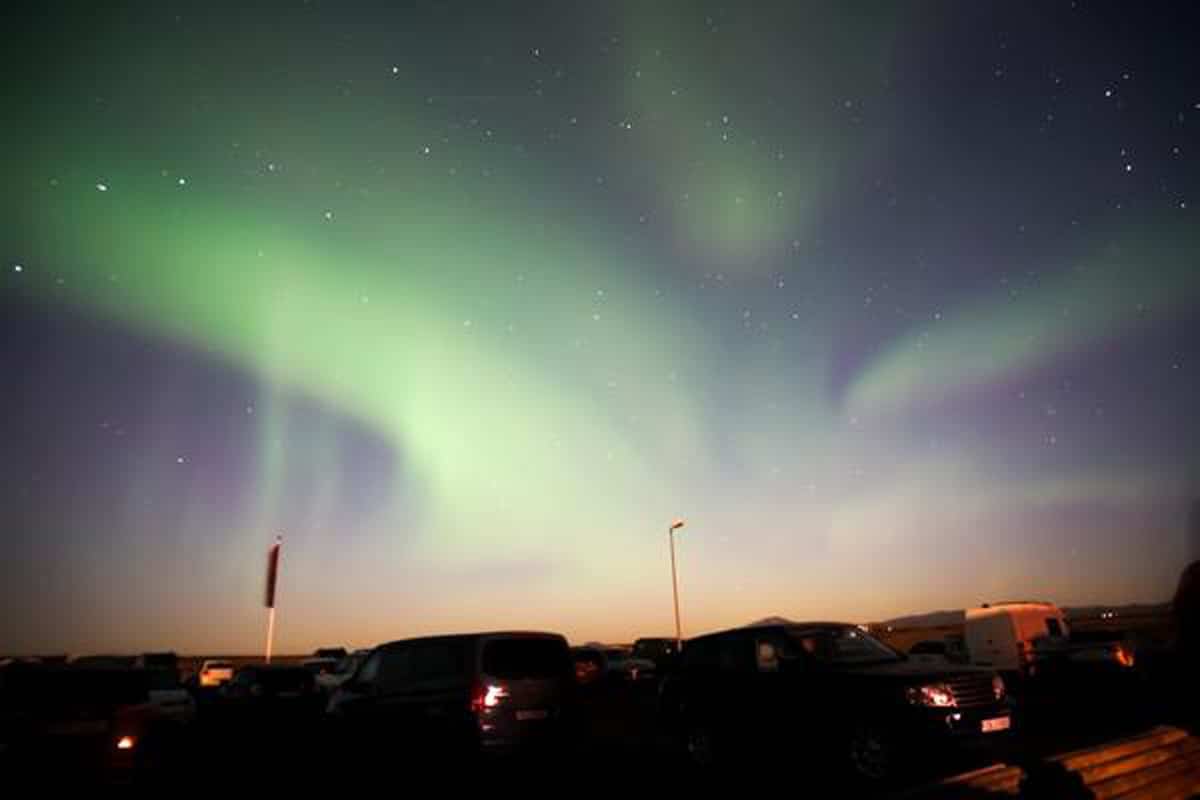
The phone rang after a couple of hours – the lights were back out and in action. I stumbled, bleary eyed and heavy footed, but I was really glad I did, it was a great show.
Even if I did trip myself up and gouge a section out of my shin #clumsy.
Book a Northern Lights Tour
If Rangá is a little out of your price range, or you want to base yourself in Reykjavik for your stay in Iceland, you do have the option of taking one of Iceland’s many Northern Lights tours.
Most tours will let you return night after night until you see the Northern Lights, but it’s not the same.
Planning on taking a Northern Lights Tour? Take a look at these…
- Northern Lights Bus Tour From Reykjavik
- Northern Lights Yacht Tour
- Golden Circle + Northern Lights Tour
- South Coast Northern Lights Tour
Is there a Northern Lights Forecast for Iceland?
Yes! The Icelandic Met Office includes a Northern Lights forecast on their website.
What About an App?
Useful as the Icelandic Met Office’s website and aurora forecast is, I actually ended up using the Aurora app on my phone as I found it easier to understand and navigate with its real time Northern lights tracker.
It should go without saying that both the app and the website are forecasts – not facts. Like a weather forecast, they don’t always get it right.
During my stay, the night both the app and the Met’s aurora forecast originally predicted to have the lowest chance of seeing the lights (Friday) actually was the most spectacular, with a full display that totally lit up the sky.
Still, both the app and the website are useful guidelines for what to expect aurora-wise over the short term.
So there we are. I hope that you get to see the aurora during your trip. A strong display is an incredible natural phenomenon – but even a weaker showing is an experience you won’t forget.
Read more Iceland Travel Guides
- The Ultimate Iceland Travel Guide
- The Best Things to do in Iceland
- Best Time to Visit Iceland: 5 Steps to Planning the Perfect Trip
- The Definitive Iceland Packing List: A Month By Month Breakdown of What to Pack for Iceland
- Iceland Off The Beaten Path: Discovering Iceland’s Hidden Gems
- Visiting Iceland in Winter? Here’s What You Need to Know
Love This? Save and Share on Pinterest
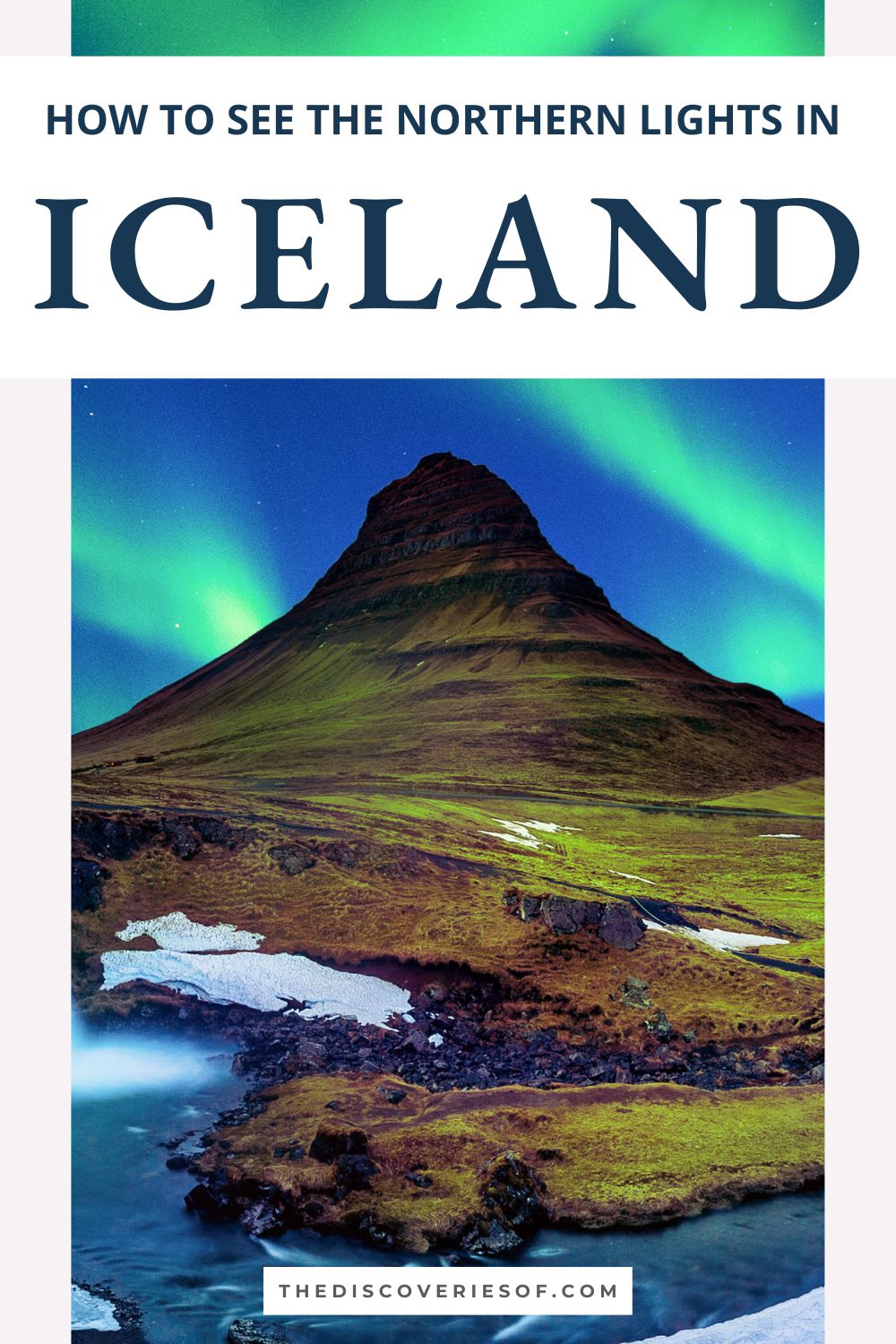
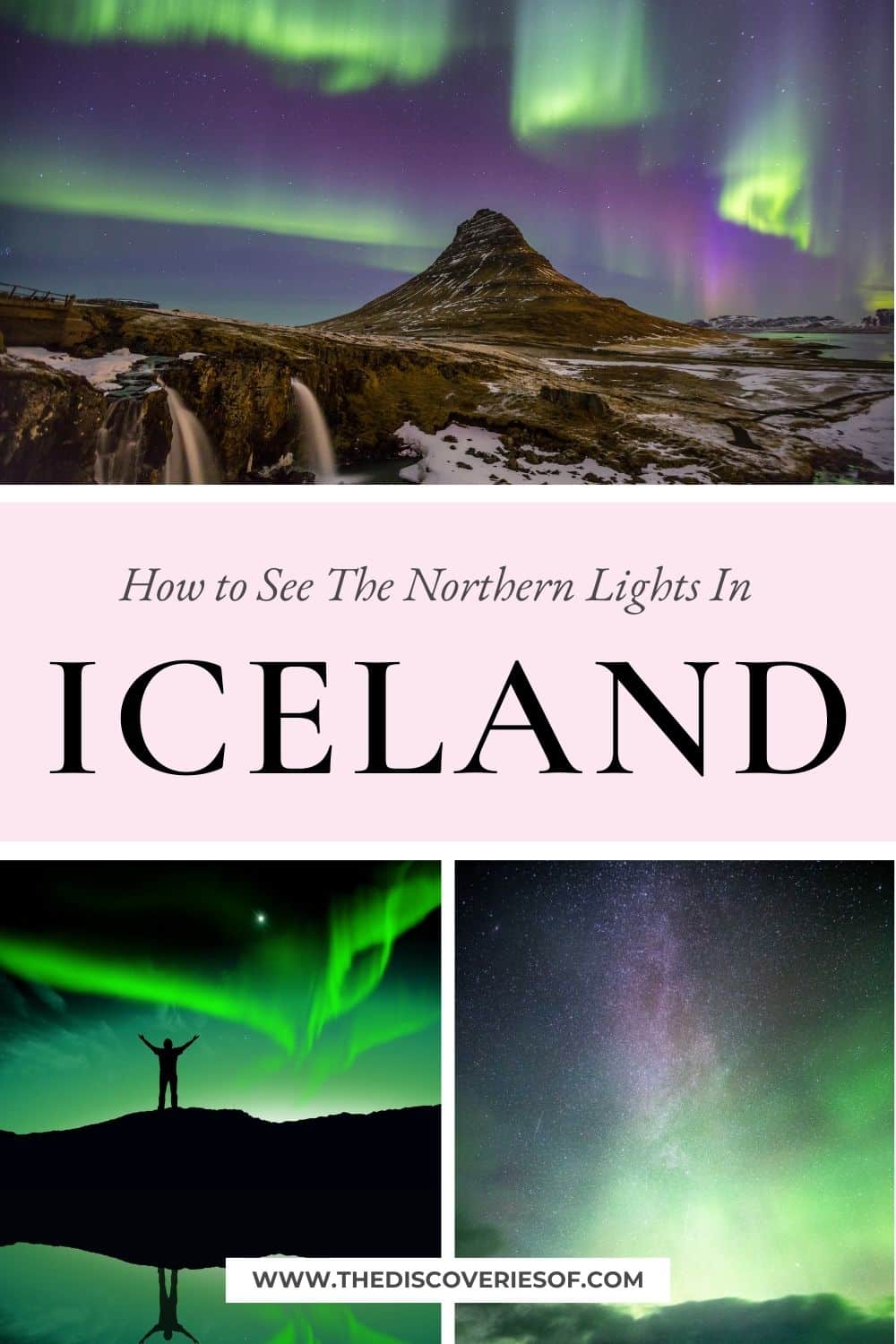

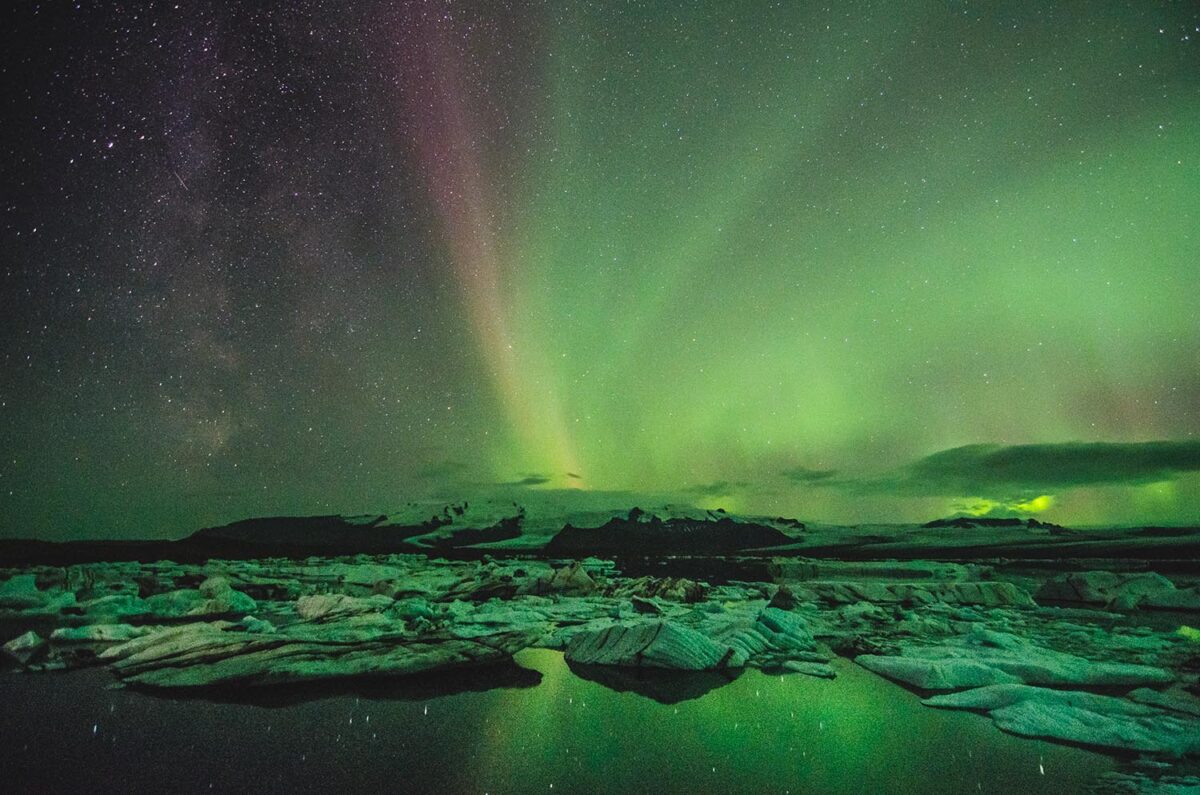
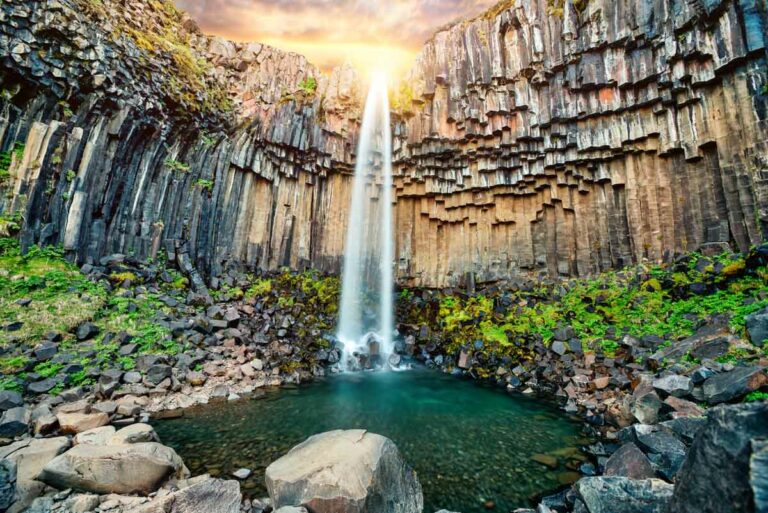
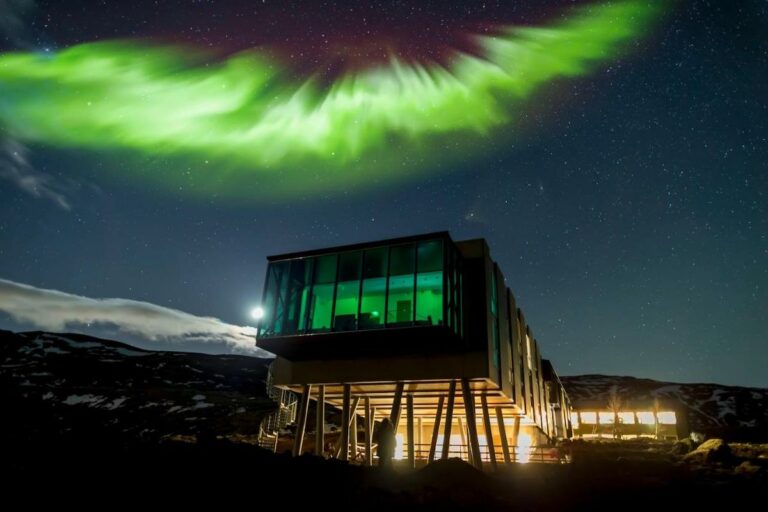
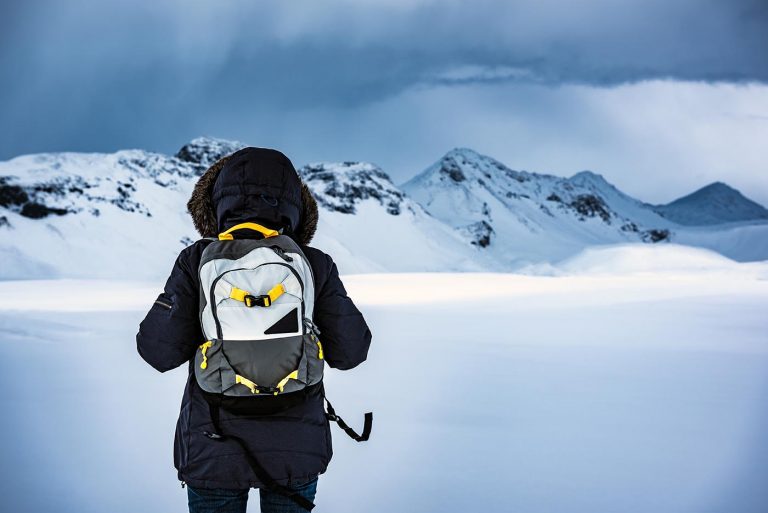
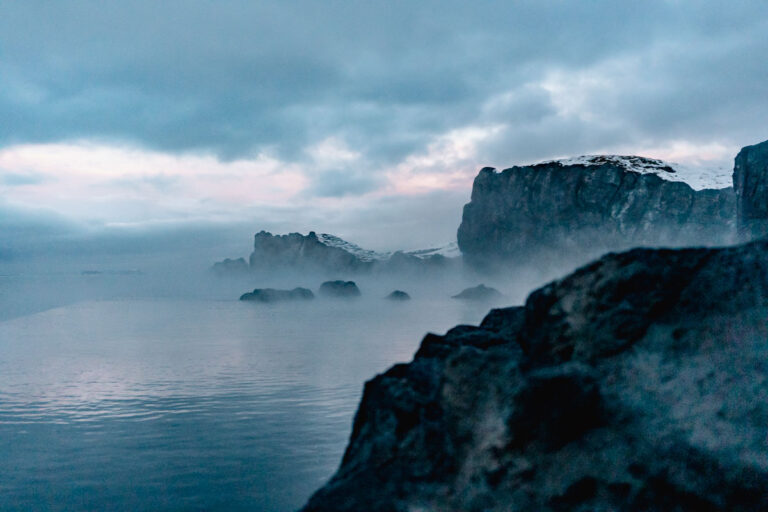
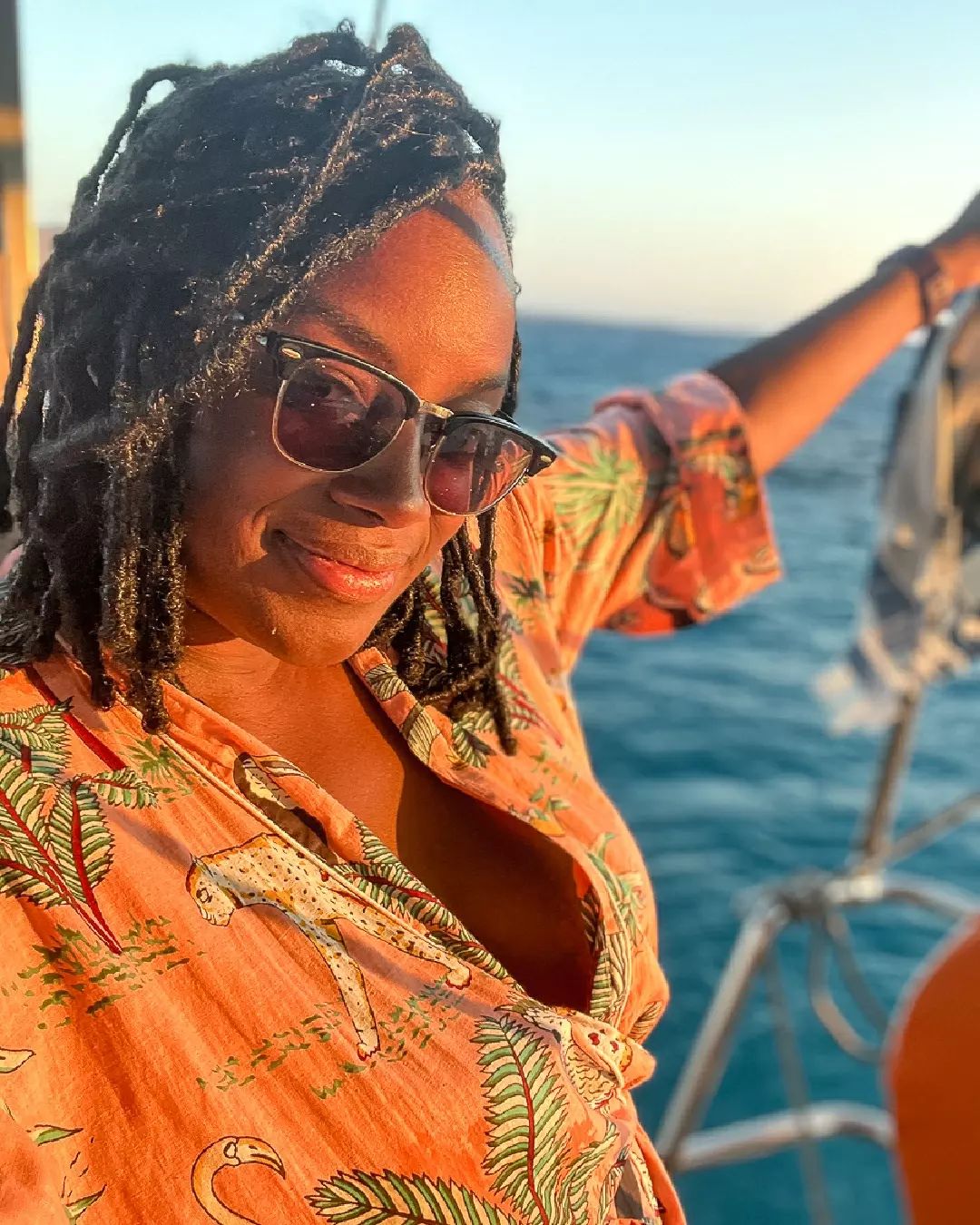
What great tips! I had a trip to Iceland planned that got canceled so I’m eager to replan and see the Northern Lights. I’ll definitely use some of this info to come up with a better plan.
Thank you Corinne! I’m really glad that you enjoyed it and found it useful. I have my fingers crossed that you see them when you do!
I loved my trip to Iceland, but was definitely bummed I didn’t go at the right time to see the Northern Lights. I think that’s a good enough excuse to go back! I’d love to go in late September next year! Great tips 🙂
Thanks Brianna – it was such an awesome experience and there’s always more reasons to go to Iceland right?!
I haven´t been to Iceland yet but after seeing your pics I am even more keen. It must be so breathtaking. Thanks for sharing.
It is completely breathtaking – I hope that you get there soon! Thank you for reading.
Literally looks amazing! The green colour on the pictures is so good. I’ve fancied Iceland for a while but never really been bothered about the Northern Lights…might need a rethink on that!
Thanks Craig – I’m so glad that you liked it. Honestly, it was an incredible experience. I love Iceland full stop but the Northern Lights were totally the icing on the cake. Hope that you make it there soon!
Hi Julianna,
First of all thank you so much for such detailed article. It was delightful reading it. I’m convinced that September is the best month to see the Aurora Borealis. May I ask you two questions:
1. I’m planning to go to see the northern lights in September of 2020. What is the best date/time to go? Beginning, mid, or end of September?
2. Are 7 nights enough nights to possibly (fingers crossed ??) see the lights or do I need to stay longer?
Thank you ?
Hi Venuse,
Thanks for the kind words – really glad that you enjoyed it and I’m so excited for your trip!
For 1. The best time to go for a chance of seeing the Northern Lights in September is towards the end of the month. Just checked 2020 dates and the equinox is on the 22nd September, so around or after this time is optimal. Sunset is around 8.30pm in Iceland in September, so there are still plenty of hours of darkness for Northern Lights viewing. It still depends on cloud cover and the strength of the displays though.
For 2. It’s a difficult one – seven nights should be enough to hopefully see the lights but I’ll caveat by saying that I do know people who have gone for that length of time (though at different times of year in winter) without seeing the lights. Ultimately, it’s always a risk – on my last trip to Iceland we saw them night one and two and night three was too cloudy.
Hope that all helps 🙂
Julianna